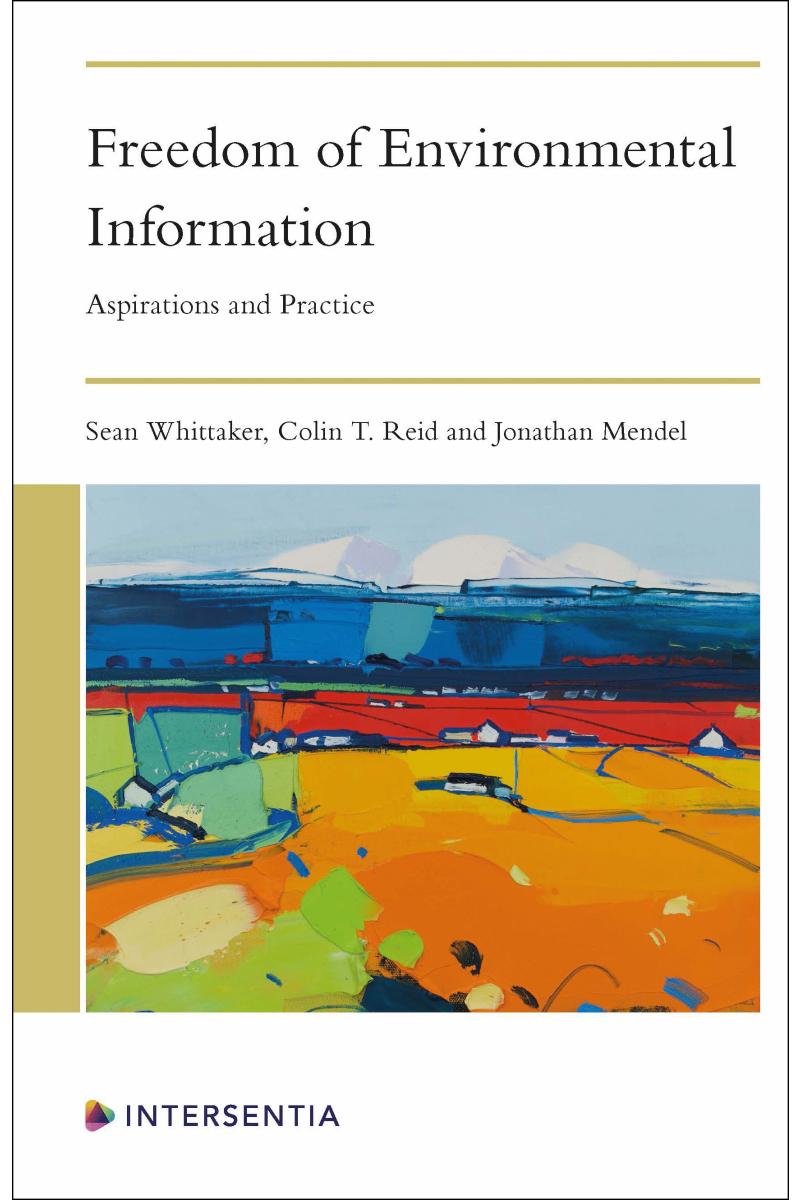 maestro
mastercard
visa
maestro
mastercard
visa

Freedom of Environmental Information
Aspirations and Practice

This book explores the right of access to environmental information, considering both the environmental aspirations which underlie the right and how far these are evidenced in the right’s use in practice. The right has a history separate from wider moves towards freedom of information. From its origins in the Rio Declaration to its current embodiment in the Aarhus Convention, a key aim of the right is to promote environmental governance and protect the environment through the provision of environmental information, both proactively and upon request.
However, there is little empirical evidence to show whether the right is achieving these environmental aims, if it is being used for its intended environmental purpose, or even how far it is being viewed as distinct from the general right to information. This book seeks to fill this gap through qualitative research conducted in Scotland, the findings of which highlight that individuals who seek environmental information under the right are often doing so for personal or professional reasons that do not further the right’s environmental purpose. This is significant, because if the right is not being used for its intended environmental purpose, then its contribution to environmental governance can be questioned, as can the value of maintaining this specific right, distinct from wider freedom of information laws.
This book analyses the mismatch between the intended and actual use of the right through the lens of Actor-Network Theory. By tracing the associations between different actors that engage with each other in relation to environmental information, it identifies various unspoken assumptions within the right to environmental information that impact on its implementation and ability to achieve its environmental aims. In particular, the right’s overly-simplified conceptualisation of the individuals and public authorities who engage with the right and its failure to consider the impact of non-human actors are identified as key unspoken assumptions in the operation and shaping of the right. The fact that the environment itself has such a low profile in the operation of the right is also noted.
By engaging with and challenging these unspoken assumptions, Freedom of Environmental Information: Aspirations and Practice provides a unique insight into the operation and fundamental aims of the right of access to environmental information. By identifying the mismatch between aspirations and practice, the book provides a novel insight into this critical aspect of environmental governance and provides a foundation for further inquiry into and critique of the right to access environmental information.
SEAN WHITTAKER is a Lecturer in Law at the University of Dundee, where he specialises in public law, information law and comparative law.
COLIN T. REID is Professor of Environmental Law at the University of Dundee, working on various environmental law and public law themes, especially biodiversity and devolution. He is a Patron of the UK Environmental Law Association.
JONATHAN MENDEL is Senior Lecturer in Human Geography at the University of Dundee. His research focusses on topics including: access to environmental information; data, information and surveillance policy and technology and anti-trafficking.
| Type of product | Book |
|---|---|
| Format | Paperback |
| EAN / ISSN | 9781839702853 / 9781839703317 |
| Weight | 400 g |
| Status | Available |
| Number of pages | xii |
| Access to exercice | No |
| Publisher | Intersentia |
| Language | English |
| Publication Date | Jan 9, 2023 |
| Available on Strada Belgique | No |
| Available on Strada Europe | No |
| Available on Strada Luxembourg | No |
Downloads
- Table of Contents and Preliminary Pages
- Chapter 1. Introduction
- Chapter 2. Theoretical and Legal Frameworks
- Chapter 3. Professional User
- Chapter 4. Personal Users
- Chapter 5. Information and Participation
- Chapter 6. Non-Human Actors
- Chapter 7. Reflections and Lessons